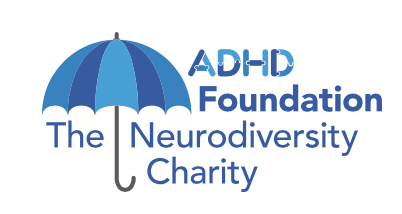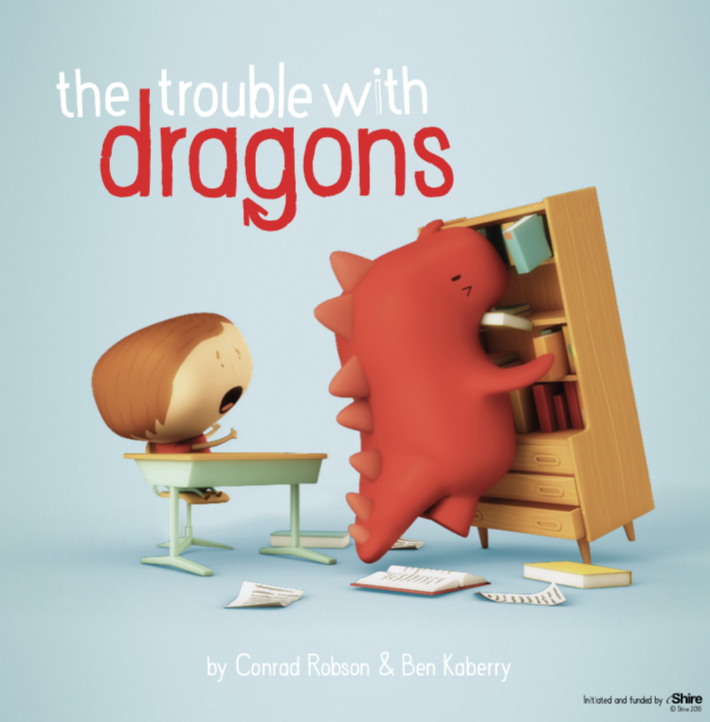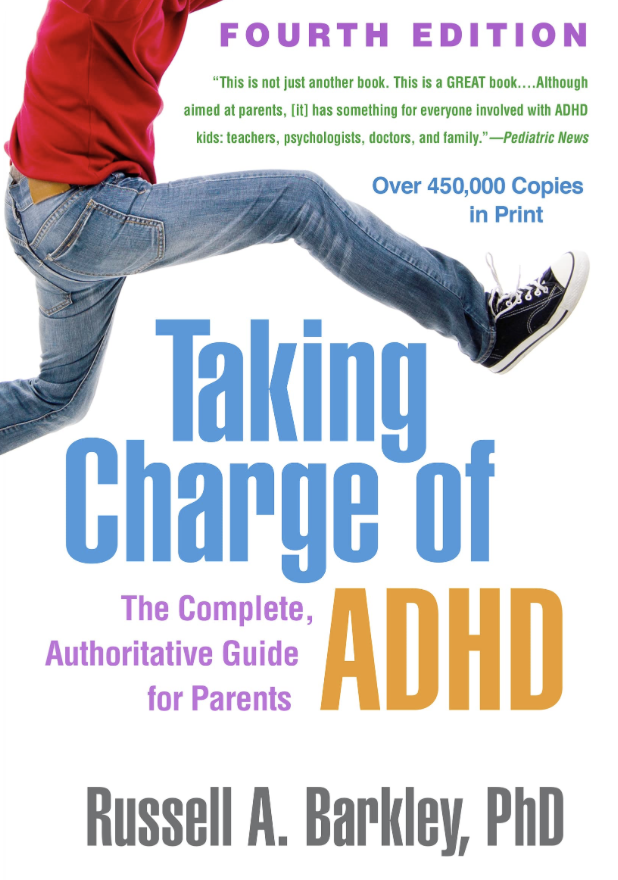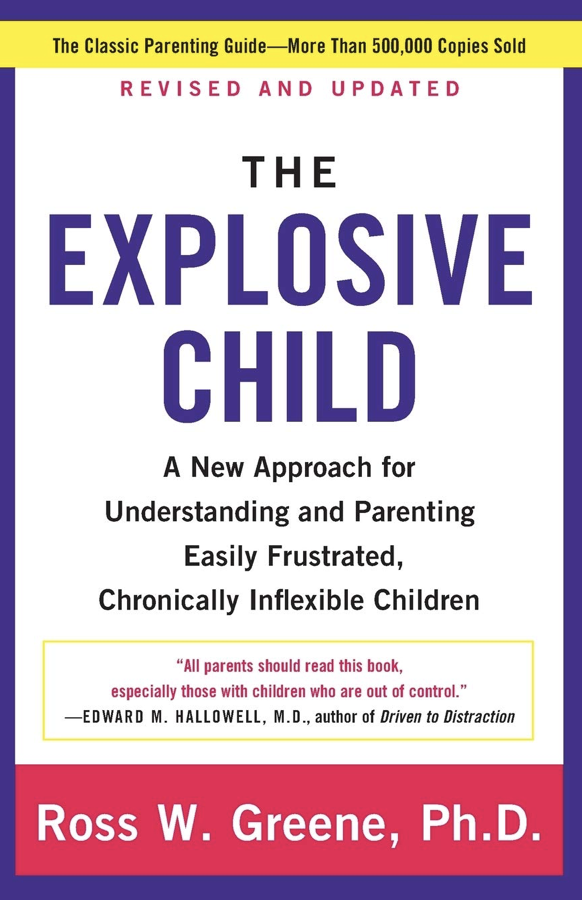Does my child have ADHD?
ADHD is a neurodevelopmental condition.
If your child has ADHD then their behaviour may be affected by:
- problems paying attention
- hyperactivity
- impulsivity
Many children struggle to pay attention and are restless some of the time. This does not necessarily mean they have ADHD.
Your child may have ADHD if their inattention or hyperactivity is much worse compared with other children of the same age and if it is affecting your child's school, social and family life.
Another way of thinking about ADHD is that your child struggles to put the brakes on things. They can't stop responding to distractions, their inside thoughts and impulsive thoughts.
Diagnosis
There is no single, simple test for ADHD. The diagnosis is made by recognising patterns of behaviour, observing your child and from reports of their behaviour at home and at school.
- Symptoms should be present for at least 6 months
- Symptoms must be seen in at least 2 places, such as at home, school, clubs or in childcare settings
- Other problems should be ruled out first, for example hearing problems
- If symptoms are mild then a formal diagnosis may not be needed. Sometimes behaviours can be managed using self help tips such as those below and with extra support, see where to start section
Symptoms
Not all children have all the symptoms. This means some can just have problems with poor attention, while others are mainly hyperactive.
1. Problems paying attention (inattentive)
- seem forgetful
- easily distracted, for example a door banging
- difficulty concentrating on tasks
- difficulty organising themselves, for example getting ready for school
- difficulty listening, for example focusing on what a teacher is saying or struggle following instructions
2. Problems sitting still (hyperactivity)
- restless
- fidget
- full of energy, always on the go
3. Problems controlling impulses (impulsivity)
- do things without thinking
- struggle to wait their turn for example in a game or in a queue
Where to start?
- Start by making an appointment with your child's teacher or the School Nursing Team to discuss your concerns. Even if your child’s difficulties are not obvious at school, this is still the best place to seek early support.
- You can also speak to your Health Visitor or School Nurse (0-19 service) or GP.
- Strengths and Difficulties Questionnaires (SDQ) for different age groups can be found as PDF files on www.sdqinfo.org. They are sometimes used as part of your child's assessment.
- Waiting times for an ADHD assessment can be long. While you are on the waiting list, you can still get support for your child, see our support for neurodivergent child. Most groups (see our support for neurodivergent child) will work with your child and support you whether or not they have a diagnosis.
ADHD assessment in your local area
Each area is different. Your child's health visitor, school or GP can refer your child for an assessment.
- Darlington
- Gateshead
- Hartlepool
- Middlesbrough
- Newcastle
- North Cumbria
- Northumberland
- North Tyneside
- Redcar & Cleveland
- South Tyneside
- Stockton
- Sunderland
Tips to help your child
1. Encourage good sleeping habits
We know lots of children with ADHD struggle with their sleep and this can cause problems concentrating at school. Visit our sleep page for more advice. Speak to your GP or paediatrician if your child has persistent problems with sleep.
2. Offer a balanced diet and encourage regular exercise
Visit our healthy eating and being active pages for advice.
3. Make instructions simple
Use a 1 sentence rule for instructions. 1 instruction at a time. Make their tasks small and give them lots of praise when they get it right.
4. Offer breaks
If you think an activity is going to be demanding, be proactive and build in short breaks. This will help make the activity feel more manageable.
5. Keep a simple routine
Routines help children focus on one thing at a time. If they know what they are doing every day, this helps them to keep organised. Make sure their meals are regular, including a good breakfast so that they are not hungry at school.
6. Help them understand their ADHD
Talk to your child about their ADHD. Try to focus on the positives of having ADHD and highlight your child’s strengths.
7. Communication
Make eye contact with your child when speaking to them. Give them advance notice of a change that is going to happen. Give your child simple choices. For example, "When you come home from school today you need to do your reading and have a bath, which would you like to do first?"
Use the word 'we'. 'How do you think 'we' could do this differently?'
8. Spend 1 to 1 quiet time with your child
Give them praise and focus on positive behaviours. Try not to criticise. Tell them when you have enjoyed spending time with them. This will help build their self esteem.
9. Friendships and play
Your child might appear socially out of tune as they may struggle to listen to instructions or dominate activities. They may find group activities difficulty and may find things like running or a martial arts easier. Encourage learning through play. Use imaginative play. Follow your child's lead.
10. Don't take your child's behaviour personally.
What does this mean for my child in the long term?
About 1 in 3 children with ADHD may grow out of it and not need treatment as an adult. Most children benefit from getting help to meet their needs. Some are able to catch up with their learning, improve their school performance and make friends.
However, some children can really struggle, even as adults. They may struggle with relationships, studying, working and with their mood.
Further information
Daisy Chain |Autism & Neurodiversity (daisychainproject.co.uk)
![]() Read the NICE Guidance on ADHD
Read the NICE Guidance on ADHD
 ADHD Foundation has lots of resources and have published a booklet for children with ADHD
ADHD Foundation has lots of resources and have published a booklet for children with ADHD
 Podcast SENsational: The Special Educational Needs Podcast including 'What every parent needs to know about ADHD'
Podcast SENsational: The Special Educational Needs Podcast including 'What every parent needs to know about ADHD'
![]() ADDitude provides guidance and support for living better with ADHD and its related mental health conditions.
ADDitude provides guidance and support for living better with ADHD and its related mental health conditions.
![]() Young Minds Parent's Guide to Supporting Your Child with ADHD
Young Minds Parent's Guide to Supporting Your Child with ADHD
Get Help and Support
Visit our Support for neurodivergent children and their families page for a full list of support available.
Books
 The Trouble with Dragons is a free book from the ADHD Foundation for very young children.
The Trouble with Dragons is a free book from the ADHD Foundation for very young children.
 Taking Charge of ADHD: The Complete, Authoritative Guide for Parents by Russell Barkley
Taking Charge of ADHD: The Complete, Authoritative Guide for Parents by Russell Barkley
 The Explosive Child by Ross Greene
The Explosive Child by Ross Greene
![]() Read the BookTrust's tips for supporting reading for children with ADHD
Read the BookTrust's tips for supporting reading for children with ADHD
Pages in this section
Where should you seek help?
- If it is non-urgent, speak to your local pharmacist or health visitor.
- If your child has any of the above features, urgently see your GP. For an urgent out-of-hours GP appointment, call NHS 111.
- You should only call 999 or go to your nearest A&E department in critical or life threatening situations.
Pharmacists are experts in many aspects of healthcare and can offer advice on a wide range of long-term conditions and common illnesses such as coughs, colds and stomach upsets. You don’t need an appointment and many have private consultation areas, so they are a good first port of call. Your pharmacist will say if you need further medical attention.
Sound advice
- Visit a pharmacy if your child is ill, but does not need to see a GP.
- Remember that if your child's condition gets worse, you should seek further medical advice immediately.
- Help your child to understand - watch this video with them about going to the pharmacy.
For information on common childhood illnesses go to What is wrong with my child?
Pharmacists are experts in many aspects of healthcare and can offer advice on a wide range of long-term conditions and common illnesses such as coughs, colds and stomach upsets. You don’t need an appointment and many have private consultation areas, so they are a good first port of call. Your pharmacist will say if you need further medical attention.
Sound advice
- Visit a pharmacy if your child is ill, but does not need to see a GP.
- Remember that if your child's condition gets worse, you should seek further medical advice immediately.
- Help your child to understand - watch this video with them about going to the pharmacy.
For information on common childhood illnesses go to What is wrong with my child?
Health visitors are nurses or midwives who are passionate about promoting healthy lifestyles and preventing illness through the delivery of the Healthy Child Programme. They work with you through your pregnancy up until your child is ready to start school.
Health Visitors can also make referrals for you to other health professionals for example hearing or vision concerns or to the Community Paediatricians or to the child and adolescent mental health services.
Contact them by phoning your Health Visitor Team or local Children’s Centre.
Sound advice
Health visitors also provide advice, support and guidance in caring for your child, including:
- Breastfeeding, weaning and healthy eating
- Exercise, hygiene and safety
- Your child’s growth and development
- Emotional health and wellbeing, including postnatal depression
- Safety in the home
- Stopping smoking
- Contraception and sexual health
- Sleep and behaviour management (including temper tantrums!)
- Toilet training
- Minor illnesses
For more information watch the video: What does a health visitor do?
Health visitors are nurses or midwives who are passionate about promoting healthy lifestyles and preventing illness through the delivery of the Healthy Child Programme. They work with you through your pregnancy up until your child is ready to start school.
Health Visitors can also make referrals for you to other health professionals for example hearing or vision concerns or to the Community Paediatricians or to the child and adolescent mental health services.
Contact them by phoning your Health Visitor Team or local Children’s Centre.
Sound advice
Health visitors also provide advice, support and guidance in caring for your child, including:
- Breastfeeding, weaning and healthy eating
- Exercise, hygiene and safety
- Your child’s growth and development
- Emotional health and wellbeing, including postnatal depression
- Safety in the home
- Stopping smoking
- Contraception and sexual health
- Sleep and behaviour management (including temper tantrums!)
- Toilet training
- Minor illnesses
For more information watch the video: What does a health visitor do?
Midwives provide advice, care and support for women and their babies during pregnancy, labour and the early postnatal period. They provide health education and parenting advice until care is transferred to a health visitor. This usually happens when your baby is about 2 weeks old.
Sound Advice
A midwife is an expert in normal pregnancy and birth.
Midwives provide advice, care and support for women and their babies during pregnancy, labour and the early postnatal period. They provide health education and parenting advice until care is transferred to a health visitor. This usually happens when your baby is about 2 weeks old.
Sound Advice
A midwife is an expert in normal pregnancy and birth.
GPs assess, treat and manage a whole range of health problems. They also provide health education, give vaccinations and carry out simple surgical procedures. Your GP will arrange a referral to a hospital specialist should you need it.
Sound advice
You have a choice of service:
- Doctors/GPs can treat many illnesses that do not warrant a visit to A&E.
- Help your child to understand – watch this video with them about visiting the GP or going to a walk in centre
For information on common childhood illnesses go to What is wrong with my child?
GPs assess, treat and manage a whole range of health problems. They also provide health education, give vaccinations and carry out simple surgical procedures. Your GP will arrange a referral to a hospital specialist should you need it.
Sound advice
You have a choice of service:
- Doctors/GPs can treat many illnesses that do not warrant a visit to A&E.
- Help your child to understand – watch this video with them about visiting the GP or going to a walk in centre
For information on common childhood illnesses go to What is wrong with my child?
If you’re not sure which NHS service you need, call 111. An adviser will ask you questions to assess your symptoms and then give you the advice you need, or direct you straightaway to the best service for you in your area.
Sound advice
Use NHS 111 if you are unsure what to do next, have any questions about a condition or treatment or require information about local health services.
For information on common childhood illnesses go to What is wrong with my child?
If you’re not sure which NHS service you need, call 111. An adviser will ask you questions to assess your symptoms and then give you the advice you need, or direct you straightaway to the best service for you in your area.
Sound advice
Use NHS 111 if you are unsure what to do next, have any questions about a condition or treatment or require information about local health services.
For information on common childhood illnesses go to What is wrong with my child?
A&E departments provide vital care for life-threatening emergencies, such as loss of consciousness, suspected heart attacks, breathing difficulties, or severe bleeding that cannot be stopped. If you’re not sure it’s an emergency, call 111 for advice.
Sound advice
A&E departments provide vital care for life-threatening emergencies, such as loss of consciousness, suspected heart attacks, breathing difficulties, or severe bleeding that cannot be stopped. If you’re not sure it’s an emergency, call 111 for advice.
Sound advice
School nurses care for children and young people, aged 5-19, and their families, to ensure their health needs are supported within their school and community. They work closely with education staff and other agencies to support parents, carers and the children and young people, with physical and/or emotional health needs.
Contacting the School Nurse
Primary and secondary schools have an allocated school nurse – telephone your child’s school to ask for the contact details of your named school nurse.
There is also a specialist nurse who works with families who choose to educate their children at home.
Sound Advice
Before your child starts school your health visitor will meet with the school nursing team to transfer their care to the school nursing service. The school nursing team consists of a school nursing lead, specialist public health practitioners and school health staff nurses.
They all have a role in preventing disease and promoting health and wellbeing, by:-
- encouraging healthier lifestyles
- offering immunisations
- giving information, advice and support to children, young people and their families
- supporting children with complex health needs
Each member of the team has links with many other professionals who also work with children including community paediatricians, child and adolescent mental health teams, health visitors and speech and language therapists. The school health nursing service also forms part of the multi-agency services for children, young people and families where there are child protection or safeguarding issues.
School nurses care for children and young people, aged 5-19, and their families, to ensure their health needs are supported within their school and community. They work closely with education staff and other agencies to support parents, carers and the children and young people, with physical and/or emotional health needs.
Contacting the School Nurse
Primary and secondary schools have an allocated school nurse – telephone your child’s school to ask for the contact details of your named school nurse.
There is also a specialist nurse who works with families who choose to educate their children at home.
Sound Advice
Before your child starts school your health visitor will meet with the school nursing team to transfer their care to the school nursing service. The school nursing team consists of a school nursing lead, specialist public health practitioners and school health staff nurses.
They all have a role in preventing disease and promoting health and wellbeing, by:-
- encouraging healthier lifestyles
- offering immunisations
- giving information, advice and support to children, young people and their families
- supporting children with complex health needs
Each member of the team has links with many other professionals who also work with children including community paediatricians, child and adolescent mental health teams, health visitors and speech and language therapists. The school health nursing service also forms part of the multi-agency services for children, young people and families where there are child protection or safeguarding issues.



